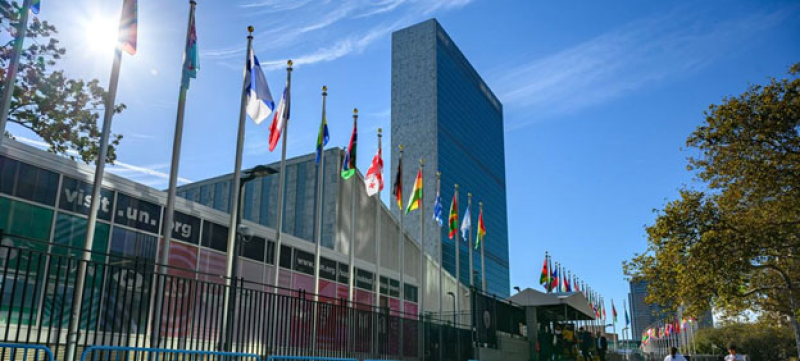- Bangladesh Faces $1.25 Billion Export Loss from US Tariffs |
- Israel Expands Gaza Assault as UN Warns of ‘Genocide’ |
- World Ozone Day Highlights Progress and Future Action |
- DG Health Services gives 12 directives to treat dengue cases |
- Stock market shows recovery as investors back: DSE chairman |
Civil Society Calls for Bigger Role at UNGA 2025

Credit: UN Photo
The recent IPS article, “UNGA’s High-Level Meetings: NGOs Banned Again,” served as a stark reminder of a long-standing paradox: the United Nations, founded on the principle of “We the Peoples,” often closes its doors to the very communities it was created to serve.
Yet, after sharing this article with our members, we were reminded of a powerful truth: despite these physical barriers, the NGO community is “better together” and remains a force capable of shaping government decisions.
The ban, far from silencing us, has only strengthened our resolve. Hundreds of NGOs are organising side events outside the UN, partnering with willing governments, and continuing vital work.
We are often told that access is restricted “for security.” But the net effect is to marginalise the very partners the UN relies upon when crises erupt, when schools need rebuilding, when refugees need housing, and when women and youth need pathways into the formal economy. If the room is too small for the people, you don’t shrink the people—you build a bigger room.
This ban also highlights why our NGO Committee is deeply engaged in the 2025 UNGA Week (22–30 September) initiative. We are committed to expanding UNGA beyond the UN walls into the vibrant communities of the Tri-State area and beyond.
Our goal is to transform this week into an “Olympic-calibre” platform where diplomacy connects directly with culture, community, and commerce.
As a private-sector committee of NGOs, we recognise we are sometimes perceived as being “on the side of governments” because we emphasise jobs, investment, and a strong economy. That has spared us some of the criticism human rights and relief NGOs face each September.
But proximity to government does not mean complacency. Where we part ways with business-as-usual—both in some capitals and within parts of the UN system—is on the scale of joblessness that goes uncounted. Our coalition’s fieldwork and surveys in Haiti and across the LDC bloc suggest joblessness often exceeds 60% when precarious, informal survivalism is considered. If you don’t count people’s reality, you cannot credibly fix it.
That is why our 2025 agenda is jobs-first by design. Our Global Jobs & Skills Compact is a declaration of commitment, aligning governments, investors, DFIs, and diaspora capital around a simple test: does the money create decent work at scale—and are we measuring it?
We are mobilising financing tied to verifiable employment outcomes, building skills pipelines for the green and digital transitions, and embedding accountability so “promises” translate into paycheques.
Accountability also requires transparency. During the General Debate, we will run a Jobs-First Debate Watch—tracking commitments announced from the podium and urging follow-through throughout the year.
The goal is not to expose governments but to help them succeed by making the public a partner. Honesty is the first step toward recovery—whether from addiction or unemployment. Denial doesn’t heal; measurement does.
IPS rightly reminds us that NGOs are indispensable to multilateralism, even when left outside. If the UN is truly “We the Peoples,” then UNGA Week must be where the people are—inside the Hall and across the city, on campuses, in churches, in galleries, small businesses, parks, and public squares.
Until every door is open, we will keep building bigger rooms—filling them with jobs, skills, investment, and voices that make multilateralism real.
Harvey Dupiton is a former UN Press Correspondent and currently Chair of the NGO Committee on Private Sector Development (NGOCPSD).

